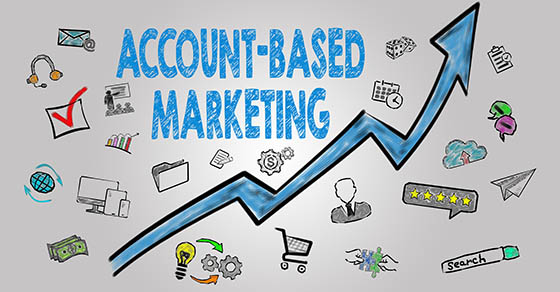Should your business offer the new emergency savings accounts to employees?
- ByPolk & Associates
- Jan, 30, 2024
- All News & Information
- Comments Off on Should your business offer the new emergency savings accounts to employees?
As part of the SECURE 2.0 law, there’s a new benefit option for employees facing emergencies. It’s called a pension-linked emergency savings account (PLESA) and it became effective for plan years beginning Jan. 1, 2024. Employers with 401(k), 403(b) and 457(b) plans can opt to offer PLESAs to non-highly compensated employees. For 2024, a participant who earned $150,000 or more in 2023 is highly compensated. Contributions to the accounts are limited to $2,500 (or a lower amount determined by the plan sponsor) in 2024. The $2,500 amount will be adjusted for inflation in future years. To learn more from the U.S. Department of Labor and the IRS: https://bit.ly/3tQURm2 or https://bit.ly/3S7mWgY
Account-based marketing can help companies rejoice in ROI
- ByPolk & Associates
- Jan, 17, 2024
- All News & Information
- Comments Off on Account-based marketing can help companies rejoice in ROI
For B2B companies, a generalized marketing approach could leave key customers and prospects unimpressed. Under an account-based marketing strategy, marketing and sales teams collaboratively focus on targeted high-value accounts to create a customized experience that locks in the buyer long-term through deep relationship building and personalized service. Some potential benefits are a better return on investment than other marketing methods, improved alignment between marketing and sales, and a stronger industry reputation. But there are risks. You’ve got to choose your targets carefully and execute the strategy effectively to avoid squandering the resources you invest. Contact us for help.
Did your business buy the wrong software?
- ByPolk & Associates
- Jan, 17, 2024
- All News & Information
- Comments Off on Did your business buy the wrong software?
A recent survey found that a perhaps surprising number of companies regret the software purchases they’ve made. Clearly, it’s in every business’s best interest to go slow when it comes to buying software. Start by asking fundamental questions such as “What functionalities do we need?” and “Who will use the software?” Think about compatibility with your existing operating system and other software. Consider surveying employees and, if appropriate, customers to determine whether the software would really be an improvement. Last, scrutinize vendors carefully. Ideally, you want to create a list of prequalified providers to choose from. Contact us for help with your next purchase.
Tax-favored Qualified Small Business Corporation status could help you thrive
- ByPolk & Associates
- Jan, 17, 2024
- All News & Information
- Comments Off on Tax-favored Qualified Small Business Corporation status could help you thrive
Operating your small business as a Qualified Small Business Corporation (QSBC) could be a tax-wise idea. QSBCs are the same as garden-variety C corporations for tax and legal purposes, except QSBC shareholders are potentially eligible to exclude from federal income tax 100% of their stock sale gains. That translates into a 0% federal income tax rate on QSBC stock sale profits! However, you must meet several requirements set forth in the Internal Revenue Code, and not all shares meet the tax-law description of QSBC stock. Other rules apply. Consult with us if you’re interested in operating your business as a QSBC.
Answers to your tax season questions
- ByPolk & Associates
- Jan, 17, 2024
- All News & Information
- Comments Off on Answers to your tax season questions
The IRS will open the 2024 tax return filing season on Jan. 29. The deadline for filing a 2023 return or requesting an extension is April 15 for most people (April 17 in Maine and Massachusetts). You may want to file early rather than procrastinating. It can potentially protect you from tax identity theft. In these scams, a thief uses another person’s personal information to file a fraudulent return early in the filing season and claim a fake refund. One question you may have is: When will W-2s and 1099s arrive? Jan. 31 is the deadline for employers to file 2023 W-2s and, generally, for businesses to file 1099s for 2023 interest, dividends, independent contractor payments and other payments.
The kiddie tax could affect your children until they’re young adults
- ByPolk & Associates
- Jan, 09, 2024
- All News & Information
- Comments Off on The kiddie tax could affect your children until they’re young adults
The “kiddie tax” can cause some of a child’s unearned income to be taxed at the parent’s higher marginal federal income tax rates instead of at the usually much lower rates that a child would otherwise pay. For purposes of this federal income tax provision, a “child” can be up to 23 years old. The kiddie tax is only assessed on a child’s or young adult’s unearned income. That usually means interest, dividends and capital gains. These types of income often come from custodial accounts that parents and grandparents set up and fund for younger children. Earned income from a job or self-employment is never subject to the kiddie tax. Other rules apply. Contact us if you want more information.
Does your business have employees who get tips? You may qualify for a tax credit
- ByPolk & Associates
- Jan, 09, 2024
- All News & Information
- Comments Off on Does your business have employees who get tips? You may qualify for a tax credit
If you’re an employer with a business where tipping is routine when providing food and beverages, you may qualify for a federal tax credit involving the Social Security and Medicare (FICA) taxes that you pay on your employees’ tip income. The credit is claimed as part of the general business credit. It’s equal to the employer’s share of FICA taxes paid on tip income in excess of what’s needed to bring your employee’s wages up to $5.15 per hour. In other words, no credit is available to the extent the tip income just brings the employee up to $5.15 per hour, calculated monthly. Other rules may apply. Contact us if you have any questions about this potentially valuable tax break.
Defer a current tax bill with a like-kind exchange
- ByPolk & Associates
- Jan, 09, 2024
- All News & Information
- Comments Off on Defer a current tax bill with a like-kind exchange
If you’re interested in selling commercial or investment real estate that has appreciated significantly, one way to defer a tax bill on the gain is with a Section 1031 “like-kind” exchange. With this transaction, you exchange the property rather than sell it. A like-kind exchange is any exchange of real property held for investment or for productive use in your trade or business for like-kind investment, trade or business real property. Like-kind exchanges can be an attractive tax-deferred way to dispose of real property if you anticipate a large tax bill and meet the requirements. Contact us if you have questions or would like to discuss the strategy further.
It’s possible (but not easy) to claim a medical expense tax deduction
- ByPolk & Associates
- Jan, 09, 2024
- All News & Information
- Comments Off on It’s possible (but not easy) to claim a medical expense tax deduction
One of your 2024 resolutions may be to maintain good health. Can you deduct your out-of-pocket medical costs on your tax return? It depends. Medical expenses can be deducted only to the extent unreimbursed costs exceed 7.5% of your adjusted gross income. Plus, medical costs are deductible only if you itemize, which means that your itemized deductions must exceed your standard deduction. Eligible costs include hospital and doctor bills. They also include: health insurance premiums, eyeglasses, hearing aids, most dental work, prescriptions, smoking-cessation programs and some costs of transportation to get to and from medical appointments. We can assess if you can claim a deduction.
Perform an operational review to see how well your business is running
- ByPolk & Associates
- Jan, 09, 2024
- All News & Information
- Comments Off on Perform an operational review to see how well your business is running
In M&A, business buyers perform operational due diligence to identify the strengths and weaknesses of a target company’s day-to-day activities. Business owners can perform an operational review to glean the same insights. Business buyers typically evaluate three primary areas: 1) Production/operations, to identify performance gaps, cost-cutting opportunities and productivity improvements. 2) Selling, general & administrative items, to determine whether the company’s operating expenses are too high or low. 3) Human resources, to determine the reasonability and sustainability of things such as compensation, benefits and staff relations. Contact us for help performing an operational review.










